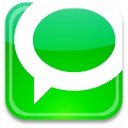1. Kaplan MCAT Premier book

This was my master book. I believe you should get a book like this because it will allow you to prepare specifically for the MCAT as apposed to just boost your knowledge say, for a college test. If you read my previous posts, you are aware I am strongly against prep companies' ripoff courses. However, I do believe that they did a pretty good job at gathering info from many sources in one place thus saving you an enormous amount of time. Most importantly, I am convinced that for ~100$ this book (along with the other items below and my study strategy) is superior to an almost 2000$ course.
However, I am digressing. There are several reasons why I chose this book. Here are a few:
- A hefty 40 page strategy for tackling one of the scariest parts of the MCAT for the science student : the essay. I had actually practiced with the strategy and although I cannot admit it is the absolute best, I did see its significance during day M.
- The book features nice tricks all over the place. Ex. need to remember the formula for specific heat capacity? Just recall what test you are writing ΔQ = mcΔT
- The book itself has a full length MCAT with explanations, the CD - another test and finally several (3 if I remember correctly) online. That is a handful of tests for free.
- This book was the foundation of my study plan (which I detail at the end of this post)

 Alternatively, you could purchase any of the other 'master' books out there. I also had the Gold Standard, which is a good review, but I felt it was somewhat less complete than the Kaplan book (although it does give you access to 3 CBT's).
Alternatively, you could purchase any of the other 'master' books out there. I also had the Gold Standard, which is a good review, but I felt it was somewhat less complete than the Kaplan book (although it does give you access to 3 CBT's).- The Gold Standard MCAT with Online Practice MCAT CBTs (The Gold Standard MCAT)
- Cracking the MCAT CBT, 2nd Edition (Graduate School Test Preparation)
- Examkrackers Mcat Complete Study Package
(seems to have very good reader reviews)

2. Schaum's Outline/Solved problems series
There are 3-5 books I would recommend:
- 3,000 Solved Problems in Chemistry (Schaum's Solved Problems) (Schaum's Solved Problems Series)
- 3000 Solved Problems in Organic Chemistry (Schaum's Solved Problems) (Schaum's Solved Problems Series)
- Schaum's Outline of Organic Chemistry
- 3,000 Solved Problems in Physics (Schaum's Solved Problems) (Schaum's Solved Problems Series)
- Schaum's Outline of College Physics, 10th edition (Schaum's Outline Series)

These books offer concise outlines of every topic included in the MCAT (as well as many others, for your own indulgence). The reason I purchased them (* I did not get the Organic Chemistry one, which had a very direct impact on my Biology section score) is very simple - they all include hundreds of problems testing BASIC knowledge of important concepts. I can give you an example: you probably know the 5 formulas of Newton's motion problems. However, are you absolutely sure you will instantly remember which one to apply when you are faced with a tricky wording? Well, the Physics books features a whole chapter just on motion problems (and another on projectiles) which first briefly summarize the formulas, then provide 5-10 solved problems (I mean complete solution with explanation) and finally provide at least 40 different problems with answers.
Although I believe these books are the reason I did so well on the MCAT, I feel I do need to explain how they became so useful in my case. First of all, I covered all the material during my CEGEP years. This layed the background both the AAMC and I strongly suggest you have before even attempting to study for the MCAT. Second, I had a study plan (more on this below) based on my specific needs, which provided a backbone to the daunting experience of spending the warm, sunny summer months behind my desk solving school problems. Finally, risking to sound cheesy and even silly, they helped me truly understand the material. What I mean by this is what every school, university and teacher strives to accomplish with their students - universality. Coming back to the example of Newton's motion formulas I gave above, I could apply them easily to the strangest problems, I could derive some of them from others (no calculus involved), e.g. impulse from F = ma. My point is not to brag about my knowledge, rather explain how I got there.
In conclusion about the outline books, I would highlight the fact that they are dirty cheap - each is less than 20$.
3. Examkrackers MCAT Audio Osmosis
Now, if you are like me, then you never leave home without your mp3 player (or ipod). Apple-
 disliking monologue aside, I felt that this is an invaluable tool for all those spending at least 20 minutes every day traveling to work/school. During the summer I was preparing for the MCAT, I worked in a lab at school. Every morning, I would spend a good 35 minutes to get there. Grudgingly, I decided to replace my music routine with Jordan and Jon's humor (which is not say it is bad, I laughed quite a lot). By the end of the summer, as M day was approching at an ever increasing speed, I actually understood Bernoulli's equation because of those 2 guys. Moreover, I had listened to most of the material I needed for the MCAT at least 3-4 times.
disliking monologue aside, I felt that this is an invaluable tool for all those spending at least 20 minutes every day traveling to work/school. During the summer I was preparing for the MCAT, I worked in a lab at school. Every morning, I would spend a good 35 minutes to get there. Grudgingly, I decided to replace my music routine with Jordan and Jon's humor (which is not say it is bad, I laughed quite a lot). By the end of the summer, as M day was approching at an ever increasing speed, I actually understood Bernoulli's equation because of those 2 guys. Moreover, I had listened to most of the material I needed for the MCAT at least 3-4 times.Although I will mention it below when I talk about the EK verbal and math strategies book, I must say that the audio contains great info about the best strategy I know for verbal : the EK one.
On the flip side of the coin, I did feel that there was no way you would solely depend on the audio. You do need to study. And for God's sake, do NOT listen to it more than 40 minutes at a time.
4. Examkrackers 101 Verbal Passages
Most people will probably know this book, since it is the only one I heard about with that many  verbal passages. I must say 2 important things about this one. First, I did have the older, 2002 edition. I heard from people who used this newer one that the passages were simply repackaged to match the shorter time frame, with only several passages added. Therefore, I am ambivalent about recommending the older edition. On the one hand, you can get it much cheaper, on the other hand - your time feel will be different. Although most people will feel like spending the extra cash, just to be on the safe side, so to speak, I do believe that those less fortunate financially speaking will be just fine with the 2002 edition. The second thing I would like to mention is that I only did half of the passages in the book. The reason for that is complex: when I started doing the AAMC practice MCATs, I felt as though the EK book was somewhat different in the way it was made. It was not easier or harder. The difference for me was far subtler than simple comparisons. It was just different, and given limited time AND the availability of the practice AAMC tests, I preferred to study with the real thing.
verbal passages. I must say 2 important things about this one. First, I did have the older, 2002 edition. I heard from people who used this newer one that the passages were simply repackaged to match the shorter time frame, with only several passages added. Therefore, I am ambivalent about recommending the older edition. On the one hand, you can get it much cheaper, on the other hand - your time feel will be different. Although most people will feel like spending the extra cash, just to be on the safe side, so to speak, I do believe that those less fortunate financially speaking will be just fine with the 2002 edition. The second thing I would like to mention is that I only did half of the passages in the book. The reason for that is complex: when I started doing the AAMC practice MCATs, I felt as though the EK book was somewhat different in the way it was made. It was not easier or harder. The difference for me was far subtler than simple comparisons. It was just different, and given limited time AND the availability of the practice AAMC tests, I preferred to study with the real thing.
 verbal passages. I must say 2 important things about this one. First, I did have the older, 2002 edition. I heard from people who used this newer one that the passages were simply repackaged to match the shorter time frame, with only several passages added. Therefore, I am ambivalent about recommending the older edition. On the one hand, you can get it much cheaper, on the other hand - your time feel will be different. Although most people will feel like spending the extra cash, just to be on the safe side, so to speak, I do believe that those less fortunate financially speaking will be just fine with the 2002 edition. The second thing I would like to mention is that I only did half of the passages in the book. The reason for that is complex: when I started doing the AAMC practice MCATs, I felt as though the EK book was somewhat different in the way it was made. It was not easier or harder. The difference for me was far subtler than simple comparisons. It was just different, and given limited time AND the availability of the practice AAMC tests, I preferred to study with the real thing.
verbal passages. I must say 2 important things about this one. First, I did have the older, 2002 edition. I heard from people who used this newer one that the passages were simply repackaged to match the shorter time frame, with only several passages added. Therefore, I am ambivalent about recommending the older edition. On the one hand, you can get it much cheaper, on the other hand - your time feel will be different. Although most people will feel like spending the extra cash, just to be on the safe side, so to speak, I do believe that those less fortunate financially speaking will be just fine with the 2002 edition. The second thing I would like to mention is that I only did half of the passages in the book. The reason for that is complex: when I started doing the AAMC practice MCATs, I felt as though the EK book was somewhat different in the way it was made. It was not easier or harder. The difference for me was far subtler than simple comparisons. It was just different, and given limited time AND the availability of the practice AAMC tests, I preferred to study with the real thing.So, in conclusion, I recommend this book if you have sufficient time. If not, try to use AAMC material only.
 5. Examkrackers: 1001 Questions in MCAT in Physics
5. Examkrackers: 1001 Questions in MCAT in PhysicsThis was a remedial book for me personally. I do not know about the quality of the EK books in other topics, but this was useful for extra physics problems.
6. Examkrackers Verbal Reasoning and Math Strategies
 This is book is useful if you want to speed up miscellaneous tasks, like calculations. The advantage this book gave was extra time, since I performed many calculations much faster and had more time to think about the tricks in the questions. An example of tricks they give: For math operations on numbers in the form 1.1 x 1012 you can use the following technique:
This is book is useful if you want to speed up miscellaneous tasks, like calculations. The advantage this book gave was extra time, since I performed many calculations much faster and had more time to think about the tricks in the questions. An example of tricks they give: For math operations on numbers in the form 1.1 x 1012 you can use the following technique:- If the operation is multiplication, add exponents (if large - no need to spend much time on the multiplication of the base numbers)
- If the operation is division, subtract exponents with same as previous logic
- If the operation is addition or subtraction, look if there is a large difference in exponents, if there is - you can neglect the smaller one and still get a very close approximation.
- I used the Kaplan book as a guide, studying it from preface to index of contents at the end. (Particularly important is the section on the written section and the Kaplan strategy).
- I practiced Verbal passages from the EK 101 untill I noticed the discrepancy between actual AAMC verbal sections.
- As mentionned earlier, I listened to the Audio Osmosis twice a day for roughly half an hour (restarting when I was done) untill I heared everything at least 4-5 times. (Particularily concentrate on the EK Verbal method).
- I used the Schaum's books as I was going through the Kaplan to nail all the tough concepts.
- I read intermittantly (and earlier in my studies) the EK Verbal and Strategy book.
I hope this guide helps. In the next posts, I will highlight some of the more unorthodox studying ways.
P.S. Merry Christmas and all the best!






1 comments:
Yay! I found good study material finally. My daughter is taking MCAT this year and I am helping her get all the study material and on the other hand my son wants to become a lawyer and I will make sure I find the best Bar Exam courses for him.
Post a Comment
Feel free to leave your medically inappropriate, scientifically inaccurate or purely subjective opinion.